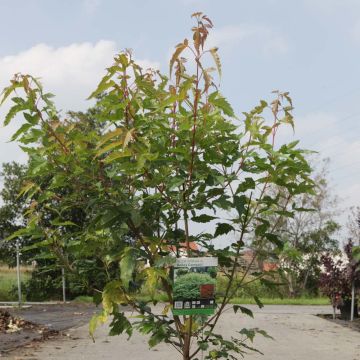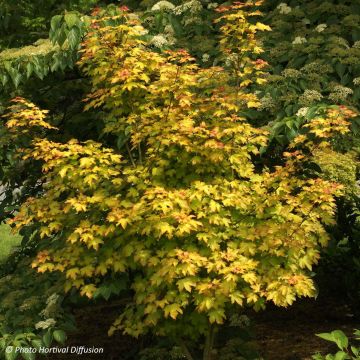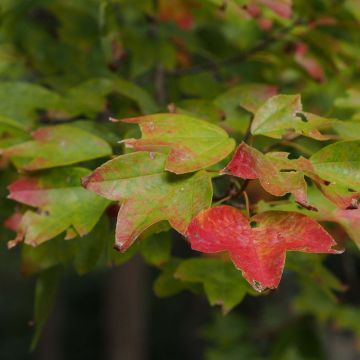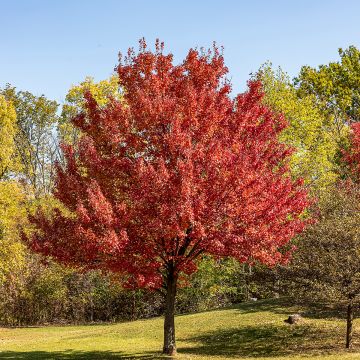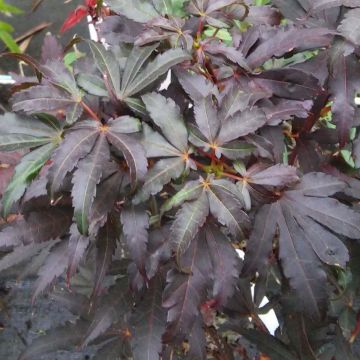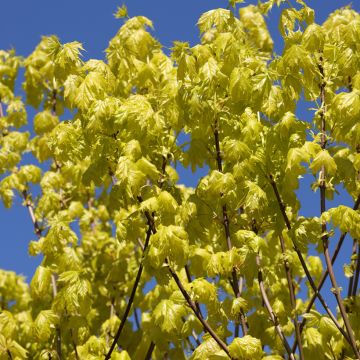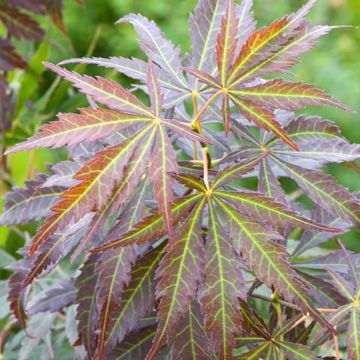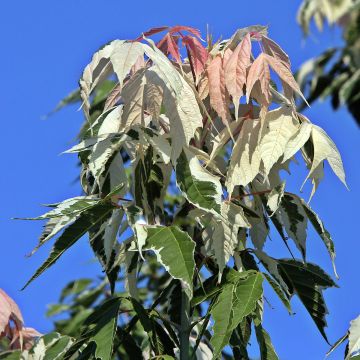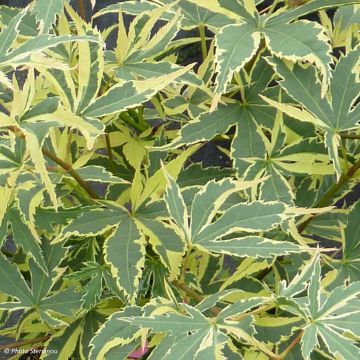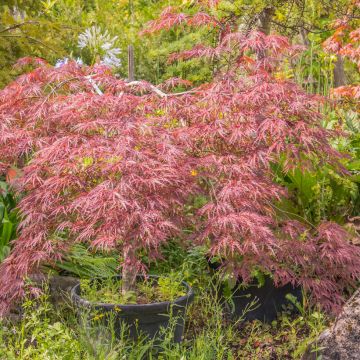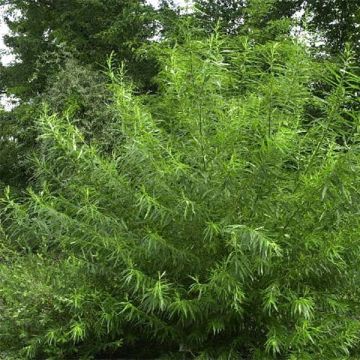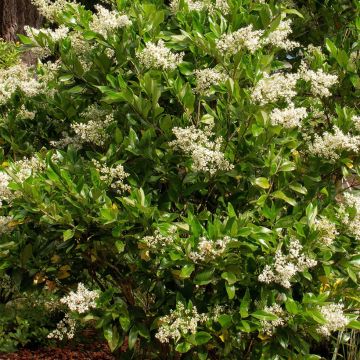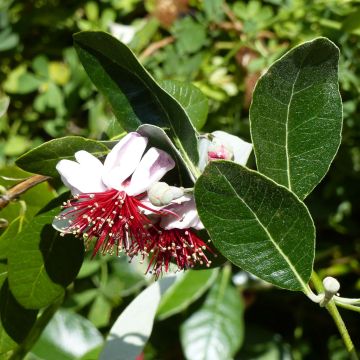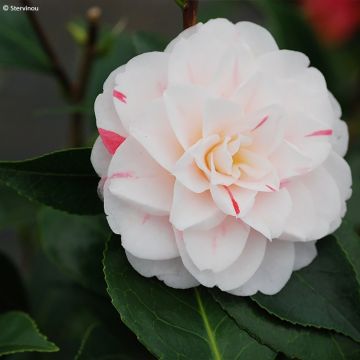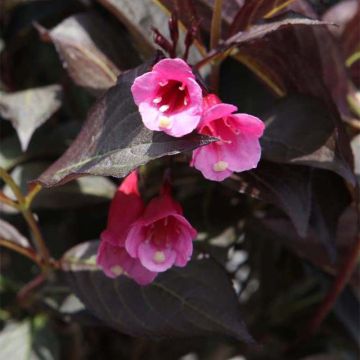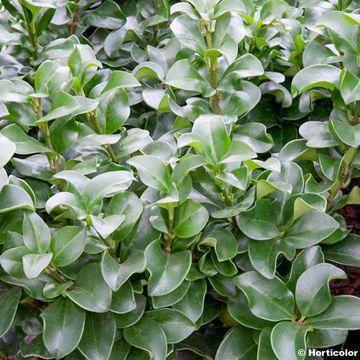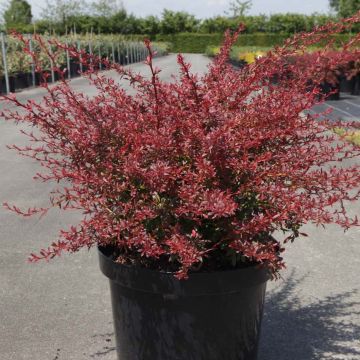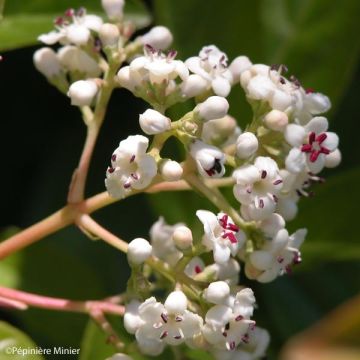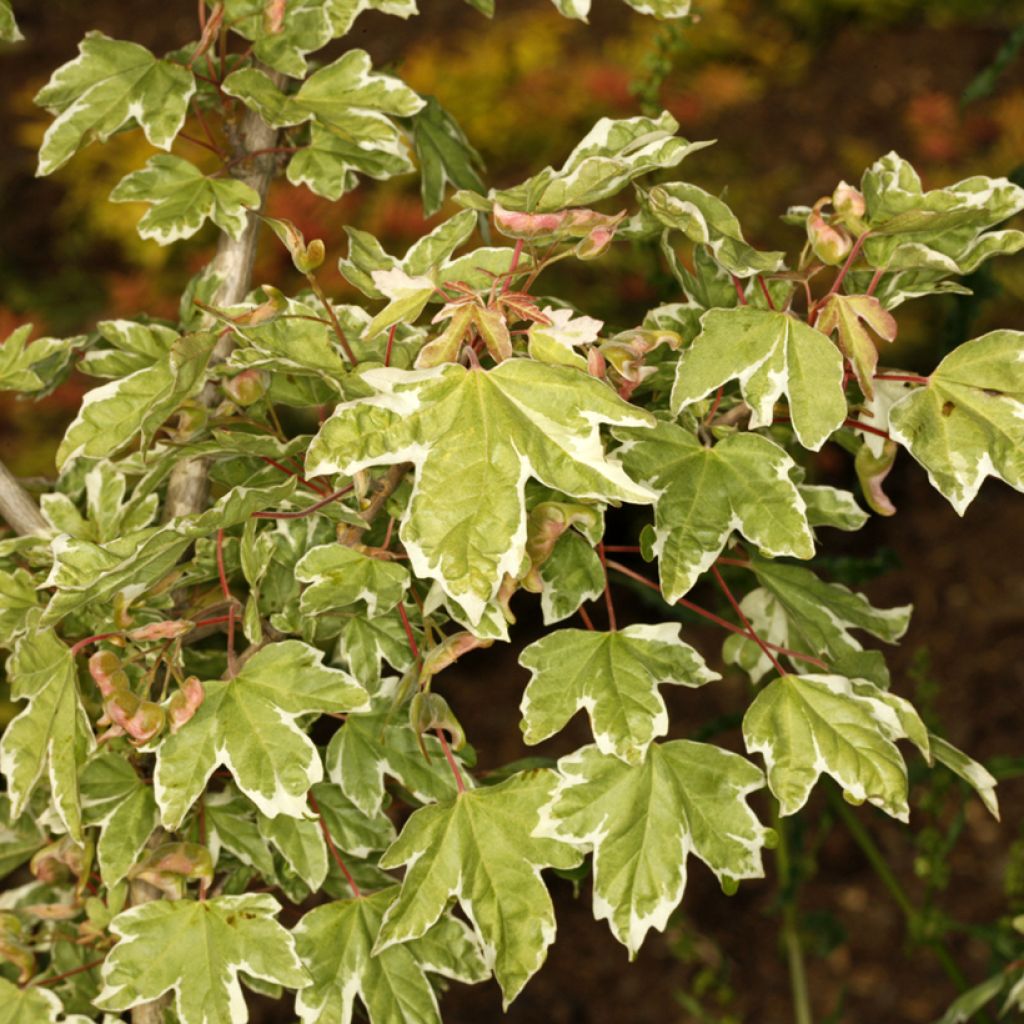

Acer campestre Silver Celebration - Field Maple
Acer campestre Silver Celebration - Field Maple
Acer campestre Silver Celebration
Field Maple, Common Maple.
Special offer!
Receive a €20 voucher for any order over €90 (excluding delivery costs, credit notes, and plastic-free options)!
1- Add your favorite plants to your cart.
2- Once you have reached €90, confirm your order (you can even choose the delivery date!).
3- As soon as your order is shipped, you will receive an email containing your voucher code, valid for 3 months (90 days).
Your voucher is unique and can only be used once, for any order with a minimum value of €20, excluding delivery costs.
Can be combined with other current offers, non-divisible and non-refundable.
Home or relay delivery (depending on size and destination)
Schedule delivery date,
and select date in basket
This plant carries a 24 months recovery warranty
More information
We guarantee the quality of our plants for a full growing cycle, and will replace at our expense any plant that fails to recover under normal climatic and planting conditions.
Would this plant suit my garden?
Set up your Plantfit profile →
Description
Acer campestre 'Silver Celebration' is an excellent variegated selection of the field maple, more resistant to the sun. It is a decorative small tree or large bush, with leaves edged with silvery white, pink young shoots and autumn colours. With a rounded and dense habit, it stands out from afar. This elegant, robust, and bright maple will fit well in the garden in an informal hedge or a grove. This undemanding tree also tolerates pruning very well, allowing it to be kept to moderate dimensions.
Acer campestre 'Silver Celebration' is a seedling of the field maple 'Carnival', selected by Junkers Nursery in England in 2001. This variety is less prone to sun scorch than its parent and appears to be more robust. It is a variegated form of the field maple, a forest tree native to Europe, Asia Minor, and North Africa. This 'Silver Celebration' variety develops one or more trunks and a wide crown. It has a fairly slow growth, about 25 to 35 cm per year, and reaches a height of 5 to 10 m with a width of 3 to 4.50 m, depending on the growing conditions. The deciduous foliage of this maple consists of leaves arranged oppositely, measuring 5 to 10 cm wide, with 3 to 5 lobes. Theey are a fairly dark green bordered with silvery white. The young leaves are variegated with pink. Autumn and the first cold weather colours the foliage golden yellow, more or less coppery or orange. The very discreet flowering takes place in spring, at the same time as the leaves emerge. The small flowers are greenish and grouped in corymbs. They are followed by winged fruits, often reddish, called samaras. The wings of this fruit are opposite and perfectly aligned. The field maple has the hardest wood that can be found in this genus. Its bark is pale grey and fissured. The branches of young specimens often have corky, ribbed, insulating, and channelled bark, used for making perches for poultry, which earned it its popular name of chicken wood.
The 'Silver Celebration' Field Maple is an accommodating small tree, it grows in any ordinary soil, even chalky and fairly dry, as long as it is deep enough. It can be placed alone among shrubs with dark foliage, such as purple-leaved weigelas, for example. In a country hedge, it can be mixed with the snowball tree 'Harvest', spindles with autumn colours, ornamental apple trees, and white-flowering spiraeas.
Report an error about the product description
Plant habit
Flowering
Foliage
Botanical data
Acer
campestre
Silver Celebration
Sapindaceae
Field Maple, Common Maple.
Cultivar or hybrid
Other Acer - Maple tree
View all →Planting and care
Acer campestre 'Silver Celebration' can be planted in spring or autumn in any deep, well-drained soil, preferably with a limestone tendency, in a sunny or semi-shady location. Once well established, it does not require watering in summer and requires no maintenance. Beware of strong winds. Keep the soil moist during the first two summers after planting. Mulching can be beneficial to maintain soil moisture.
Planting period
Intended location
Care
This item has not been reviewed yet - be the first to leave a review about it.
Similar products
Haven't found what you were looking for?
Hardiness is the lowest winter temperature a plant can endure without suffering serious damage or even dying. However, hardiness is affected by location (a sheltered area, such as a patio), protection (winter cover) and soil type (hardiness is improved by well-drained soil).

Photo Sharing Terms & Conditions
In order to encourage gardeners to interact and share their experiences, Promesse de fleurs offers various media enabling content to be uploaded onto its Site - in particular via the ‘Photo sharing’ module.
The User agrees to refrain from:
- Posting any content that is illegal, prejudicial, insulting, racist, inciteful to hatred, revisionist, contrary to public decency, that infringes on privacy or on the privacy rights of third parties, in particular the publicity rights of persons and goods, intellectual property rights, or the right to privacy.
- Submitting content on behalf of a third party;
- Impersonate the identity of a third party and/or publish any personal information about a third party;
In general, the User undertakes to refrain from any unethical behaviour.
All Content (in particular text, comments, files, images, photos, videos, creative works, etc.), which may be subject to property or intellectual property rights, image or other private rights, shall remain the property of the User, subject to the limited rights granted by the terms of the licence granted by Promesse de fleurs as stated below. Users are at liberty to publish or not to publish such Content on the Site, notably via the ‘Photo Sharing’ facility, and accept that this Content shall be made public and freely accessible, notably on the Internet.
Users further acknowledge, undertake to have ,and guarantee that they hold all necessary rights and permissions to publish such material on the Site, in particular with regard to the legislation in force pertaining to any privacy, property, intellectual property, image, or contractual rights, or rights of any other nature. By publishing such Content on the Site, Users acknowledge accepting full liability as publishers of the Content within the meaning of the law, and grant Promesse de fleurs, free of charge, an inclusive, worldwide licence for the said Content for the entire duration of its publication, including all reproduction, representation, up/downloading, displaying, performing, transmission, and storage rights.
Users also grant permission for their name to be linked to the Content and accept that this link may not always be made available.
By engaging in posting material, Users consent to their Content becoming automatically accessible on the Internet, in particular on other sites and/or blogs and/or web pages of the Promesse de fleurs site, including in particular social pages and the Promesse de fleurs catalogue.
Users may secure the removal of entrusted content free of charge by issuing a simple request via our contact form.
The flowering period indicated on our website applies to countries and regions located in USDA zone 8 (France, the United Kingdom, Ireland, the Netherlands, etc.)
It will vary according to where you live:
- In zones 9 to 10 (Italy, Spain, Greece, etc.), flowering will occur about 2 to 4 weeks earlier.
- In zones 6 to 7 (Germany, Poland, Slovenia, and lower mountainous regions), flowering will be delayed by 2 to 3 weeks.
- In zone 5 (Central Europe, Scandinavia), blooming will be delayed by 3 to 5 weeks.
In temperate climates, pruning of spring-flowering shrubs (forsythia, spireas, etc.) should be done just after flowering.
Pruning of summer-flowering shrubs (Indian Lilac, Perovskia, etc.) can be done in winter or spring.
In cold regions as well as with frost-sensitive plants, avoid pruning too early when severe frosts may still occur.
The planting period indicated on our website applies to countries and regions located in USDA zone 8 (France, United Kingdom, Ireland, Netherlands).
It will vary according to where you live:
- In Mediterranean zones (Marseille, Madrid, Milan, etc.), autumn and winter are the best planting periods.
- In continental zones (Strasbourg, Munich, Vienna, etc.), delay planting by 2 to 3 weeks in spring and bring it forward by 2 to 4 weeks in autumn.
- In mountainous regions (the Alps, Pyrenees, Carpathians, etc.), it is best to plant in late spring (May-June) or late summer (August-September).
The harvesting period indicated on our website applies to countries and regions in USDA zone 8 (France, England, Ireland, the Netherlands).
In colder areas (Scandinavia, Poland, Austria...) fruit and vegetable harvests are likely to be delayed by 3-4 weeks.
In warmer areas (Italy, Spain, Greece, etc.), harvesting will probably take place earlier, depending on weather conditions.
The sowing periods indicated on our website apply to countries and regions within USDA Zone 8 (France, UK, Ireland, Netherlands).
In colder areas (Scandinavia, Poland, Austria...), delay any outdoor sowing by 3-4 weeks, or sow under glass.
In warmer climes (Italy, Spain, Greece, etc.), bring outdoor sowing forward by a few weeks.






























